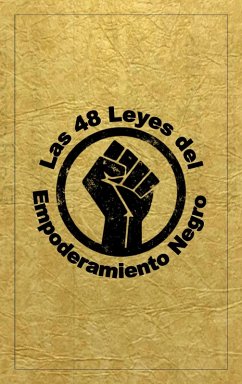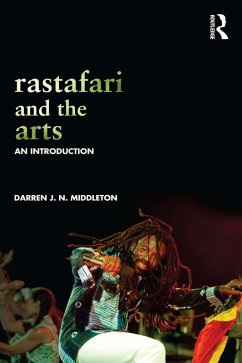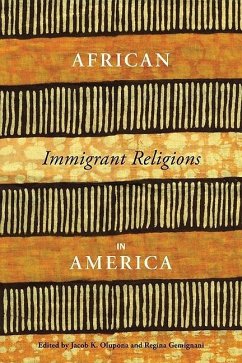
Electric Santería (eBook, ePUB)
Racial and Sexual Assemblages of Transnational Religion

PAYBACK Punkte
13 °P sammeln!
Santería is an African-inspired, Cuban diaspora religion long stigmatized as witchcraft and often dismissed as superstition, yet its spirit- and possession-based practices are rapidly winning adherents across the world. Aisha M. Beliso-De Jesús introduces the term "copresence" to capture the current transnational experience of Santería, in which racialized and gendered spirits, deities, priests, and religious travelers remake local, national, and political boundaries and reconfigure notions of technology and transnationalism.Drawing on eight years of ethnographic research in Havana and Mata...
Santería is an African-inspired, Cuban diaspora religion long stigmatized as witchcraft and often dismissed as superstition, yet its spirit- and possession-based practices are rapidly winning adherents across the world. Aisha M. Beliso-De Jesús introduces the term "copresence" to capture the current transnational experience of Santería, in which racialized and gendered spirits, deities, priests, and religious travelers remake local, national, and political boundaries and reconfigure notions of technology and transnationalism.
Drawing on eight years of ethnographic research in Havana and Matanzas, Cuba, and in New York City, Miami, Los Angeles, and the San Francisco Bay area, Beliso-De Jesús traces the phenomenon of copresence in the lives of Santería practitioners, mapping its emergence in transnational places and historical moments and its ritual negotiation of race, imperialism, gender, sexuality, and religious travel. Santería's spirits, deities, and practitioners allow digital technologies to be used in new ways, inciting unique encounters through video and other media. Doing away with traditional perceptions of Santería as a static, localized practice or as part of a mythologized "past," this book emphasizes the religion's dynamic circulations and calls for nontranscendental understandings of religious transnationalisms.
Drawing on eight years of ethnographic research in Havana and Matanzas, Cuba, and in New York City, Miami, Los Angeles, and the San Francisco Bay area, Beliso-De Jesús traces the phenomenon of copresence in the lives of Santería practitioners, mapping its emergence in transnational places and historical moments and its ritual negotiation of race, imperialism, gender, sexuality, and religious travel. Santería's spirits, deities, and practitioners allow digital technologies to be used in new ways, inciting unique encounters through video and other media. Doing away with traditional perceptions of Santería as a static, localized practice or as part of a mythologized "past," this book emphasizes the religion's dynamic circulations and calls for nontranscendental understandings of religious transnationalisms.
Dieser Download kann aus rechtlichen Gründen nur mit Rechnungsadresse in A, D ausgeliefert werden.













